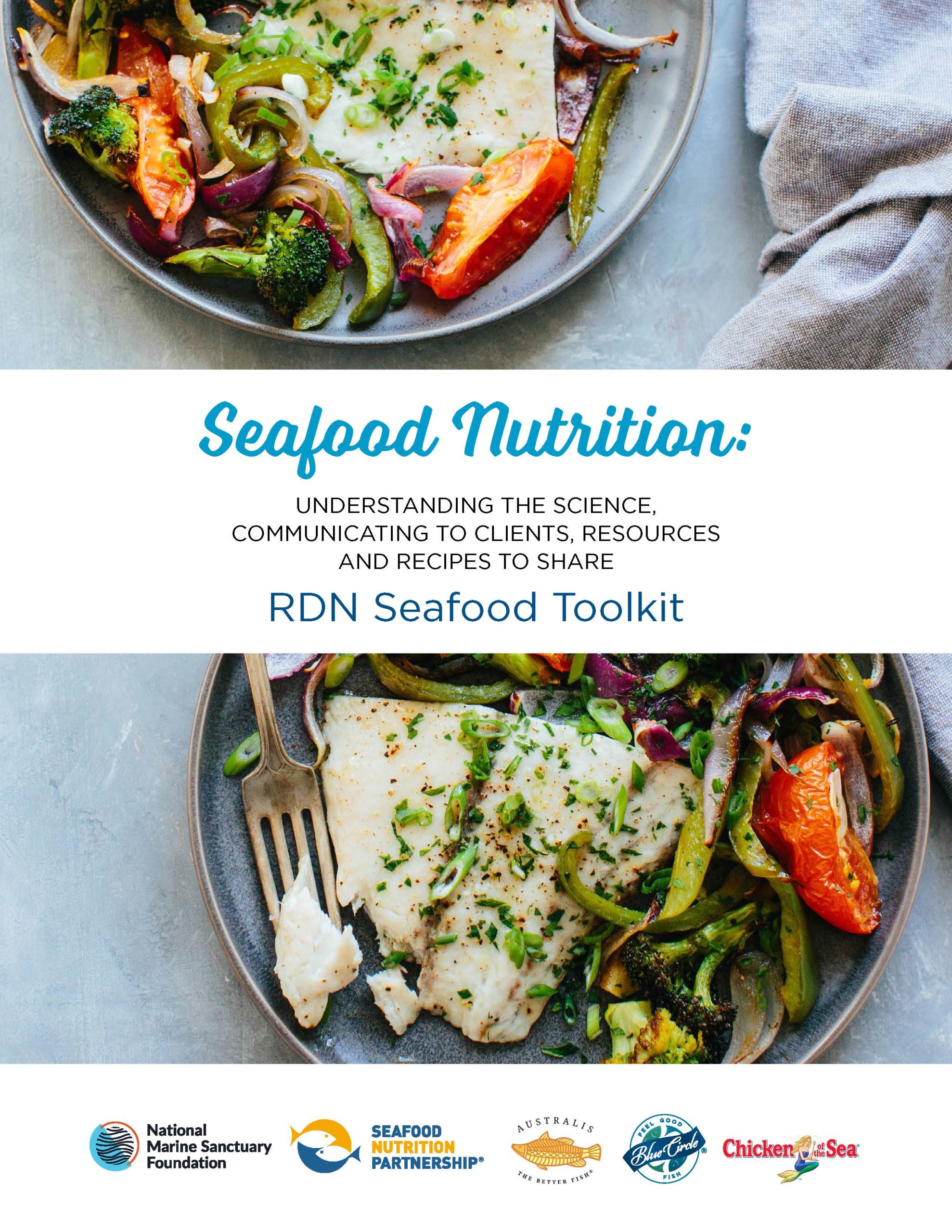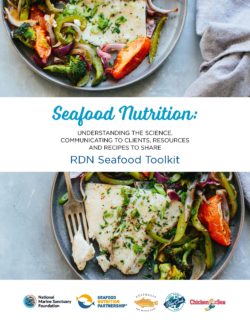
The Ultimate Seafood Guide
Seafood is an important part of a healthy and balanced diet and has many nutrients to keep your body working at its best. The Dietary Guidelines recommend regular fish and seafood consumption for optimal wellness of all functions of the body.
The National Marine Sanctuary Foundation was proud to help fund the Seafood Nutrition Partnership’s new Registered Dietitian Nutritionist Seafood Toolkit through a grant with NOAA Fisheries. The toolkit features resources related to the nutritional value and sustainability of different kinds of seafood, and the ways incorporating more seafood into a balanced diet can benefit people with diabetes, overall heart health, healthy aging, mental health and wellbeing, and childrens’ nutrition.
The Center for Disease Control and Prevention reports that about 90 percent of the United States’s $3.3 billion annual healthcare spending is to treat preventable long-term conditions, including diabetes, heart disease, and high cholesterol. Nearly seven in 10 Americans will experience conditions that can be prevented with dietary and lifestyle changes, including more exercise, reducing intake of certain ingredients or foods, and increasing their consumption of omega-3 fatty acids, which are found in seafood. The healthy fats in seafood, including omega-3s, have scientific evidence to support their role in brain development and health, heart health, reduced triglycerides and cholesterol, and overall wellness.
Choosing sustainable seafood can make a big impact on your health and the health of the planet. Sustainable seafood is seafood that is caught or farmed in environmentally and socially responsible methods that ensures a supply for future generations and the well-being of the ocean. The U.S. is recognized as a global leader in sustainable seafood, both wild-caught and farmed. FishWatch is the nation’s database on U.S. managed sustainable seafood that helps you make healthy, sustainable seafood choices. You can find information on the population status of your favorite types of seafood and the methods used to harvest or produce them, as well as nutritional information, flavor profiles, and recipes. By choosing sustainable seafood, you can help restore the health of our oceans and ensure food for us, our children, and our grandchildren.
With the free Registered Dietitian Nutritionist Seafood Toolkit, you can:
Learn what sustainable seafood is, how to identify it, and where to buy it
Learn new recipes using seafood sources that are high in omega-3 fatty acids
Learn how seafood can improve overall health throughout our lifetimes
Learn how much seafood is recommended for your age group and how to incorporate it into your existing diet
Learn new recipes and get tips on how to best cook different kinds of seafood
Find other resources related to seafood
Check out the guide here and click to learn more from our friends at the Seafood Nutrition Partnership!

